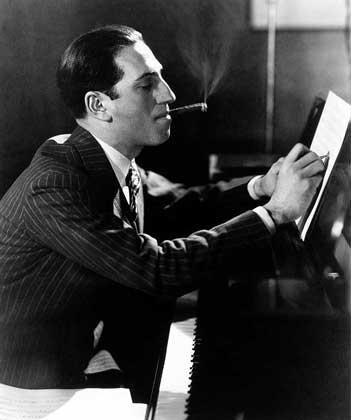Touring “Porgy and Bess” proves musically inspired but dramatically superficial

George Gershwin’s Porgy and Bess is a bonafide American classic. An audacious blend of jazz, blues, ragtime, spirituals and modernist classicism, the 1935 opera is replete with great Gershwin standards but also rises to remarkably eloquent and compassionate heights.
A large audience was on hand Sunday afternoon at Miami-Dade County Auditorium for what was billed as a 75th anniversary production, jointly presented by Orchestra Miami and New York impresario Michael Capasso. The performance was something less than the opera that Gershwin conceived. This version, like many in the past, treated the score as a quasi-Broadway musical, cast with mostly theater rather than operatic voices.
Charles Randolph Wright’s direction seemed more concerned with Broadway swagger and MTV-style flash than with librettists Dorothy and DuBose Heyward’s tale of poverty, suffering and ultimate redemption through love. For all of the staging’s fluidity and glitz, this Porgy was ultimately unmoving and superficial.
On the plus side, this production adheres to most of Gershwin’s original score (including the wonderful ragtime piano gem Jasbo Brown’s Blues and the original recitatives), the Buzzard Song being one of the few significant cuts. The eighteen-member orchestra of this touring version was enhanced by twenty-two additional string players from Elaine Rinaldi’s Orchestra Miami.
Yet the twenty-six member cast cannot substitute for the large choral forces Gershwin intended and, despite Pacien Mazzagatti’s skillful reduction of the orchestral score, the composer’s imaginative instrumental invention was only suggested in this version a kind of Porgy and Bess Lite. Miking of both singers and orchestra further diminished the work’s operatic dimensions.
Patrick Blackwell towered head and shoulders above the other cast members as Porgy. Bringing a deep, velvety bass-baritone to a subtly conveyed Bess You is My Woman Now and joyous I Got Plenty of Nothin’ , Blackwell conveyed dignity and sympathy as the crippled beggar with a heart of gold. His unaffected, eloquent shaping of the musical line contrasted with the exaggerated delivery of much of the rest of the cast.
Sequina Dubose’s lovely lyric soprano spun Summertime winningly, her pianissimo high C exquisite. She gave unusual stature to Clara as a figure of tragic grandeur. Reyna Carguill brought a solid mezzo to Serena, singing My Man’s Gone Now with heartbreaking poignancy. Stephanie Beadle turned Maria, the tough matriarch of Catfish Row, into a caricature, yelling rather than singing her lines.
Kishna Davis’ Bess was totally unsympathetic, seemingly unredeemed by Porgy’s love and only too happy to return to the hustler Sportin’ Life. Her vocal scooping lowered the temperature of Leavin’ for the Promised Land by several degrees. In a role that has been essayed by such luminaries as Leontyne Price, Grace Bumbry, Leona Mitchell and Roberta Alexander, Davis’ shrill, constricted soprano did not even come close to conveying the lyrical flights of this flawed heroine.
Former Miamian Reggie Whitehead was a Sportin’ Life in the song-and-danceman tradition of John W. Bubbles, the legendary vaudevillian cast by Gershwin in the original 1935 production. This Sportin’ Life was more evil than charming. Phillip Boykin lacked the sinister presence and commanding baritone for Crown’s outbursts. Eric McKeever offered a smoothly vocalized, capable Jake.
Gershwin’s impressive choral writing was beautifully served by Samuel Bill’s small but accomplished vocal ensemble. Rinaldi showed real affinity for Gershwin’s bluesy brand of Americana and drew supple playing from the hard-working orchestra, whipping up quite an instrumental storm in the hurricane scene.
Those audience members who came to see a slickly produced show probably enjoyed themselves. Listeners that hoped for a vivid realization of Gershwin’s masterpiece likely found this Porgy less than the sum of its parts.
Posted in Performances
One Response to “Touring “Porgy and Bess” proves musically inspired but dramatically superficial”
Leave a Comment
Mon Mar 15, 2010
at 12:37 pm
1 Comment






Posted Mar 16, 2010 at 1:04 pm by Elaine Rinaldi
I would like to make one important clarification to Mr. Budmen’s review: the orchestra and singers were not at all miked or amplified in any way. This production is routinely miked at their other performances on this tour. However, at my insistence there was no amplification of any kind. The crew set up the microphones as per their usual routine, which is why the audience saw the mikes on stage. We did feed the orchestra sound to the wings, so the singers could hear the orchestra, which is what we did when I was working with Florida Grand Opera. This sound was not projected to the house. Any balance levels or dynamics you heard were a result of the singers themselves, and my calibrating the sound of the orchestra as we performed.
Thanks!